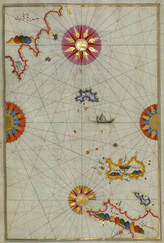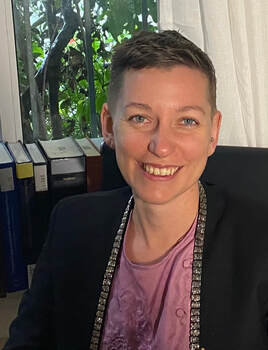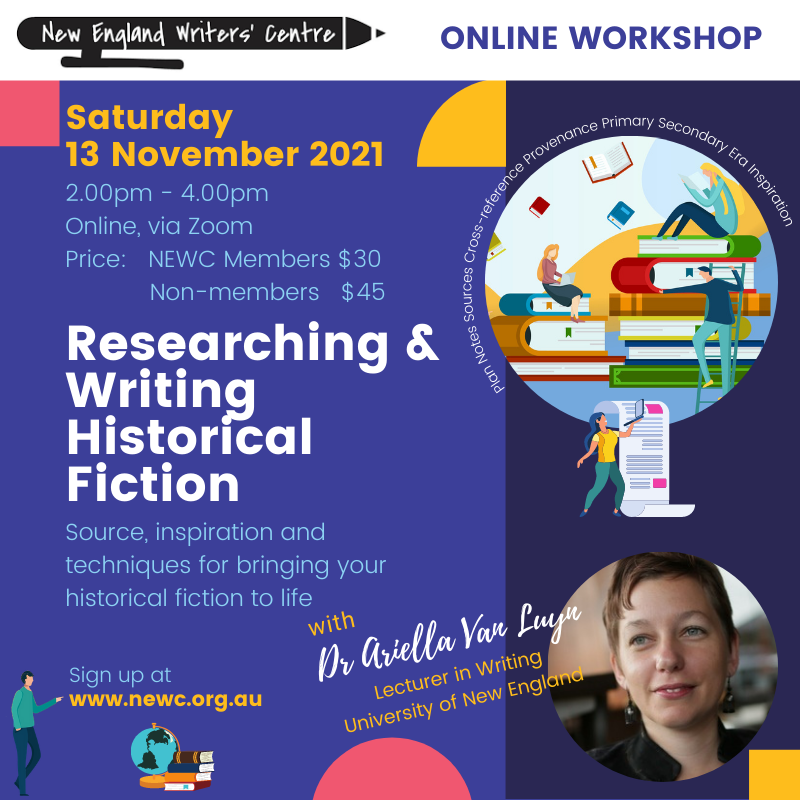|
By Lydia Roberts UNE lecturer in writing, Ariella Van Luyn, says readers want historical fiction to feel authentic "This might be a bit creepy for some, but I also like walking in cemeteries to find out about how people lived and died."
 “This might be a bit creepy for some, but I also like walking in cemeteries to find out about how people lived and died. “For example, when I lived in Brisbane, I discovered a grave in Toowong Cemetery strung with silver beads. “It turned out that the grave was Lilian Cooper's, the first female doctor in Brisbane. “She's buried with a woman called Josephine, and the inscription of the grave describes her as Lilian's lifelong companion. Lilian and Josephine became a source of inspiration for a short story I wrote.” Dr Van Luyn is currently writing a novel set in neolithic Crete, an archeological thriller set in the ancient past and near future. In her manuscript, a marine archeologist unearths an ancient shipwreck on the island of Crete, off the coast of mainland Greece. She discovers a goddess figurine, which dates the shipwreck to the neolithic era. “The novel is about her discovering who the figurine belonged to and why it ended up on the shipwreck,” Dr Van Luyn says. “It's hard to research because while the ancient people on Crete could write, no one has decoded their language, so I am spending a lot of time trying to understand archaeology papers.”  Researching fiction involves more creativity with how you are inspired by historical materials, Dr Van Luyn says. “But readers love detail and will often want historical fiction to feel authentic (even though it's really hard for us to know what the past was actually like if it's outside of living memory, we still have a sense of what feels 'real'). “So a fundamental skill might be to pay attention to the detail of objects, clothing and spaces. “Fiction writers are working with symbols, so thinking about the emotions objects and details evoke will be important for a fiction writer.” Dr Van Luyn’s workshop is aimed at anyone interested in writing about the past in a way that is evocative. “I love workshops to have a lot of discussions so participants can learn from each other as well as my experience, so I welcome diverse levels of skills,” Dr Van Luyn says. Click here to visit the workshop page
Comments are closed.
|
AuthorThe NEWC Board Archives
June 2024
Categories
All
|

